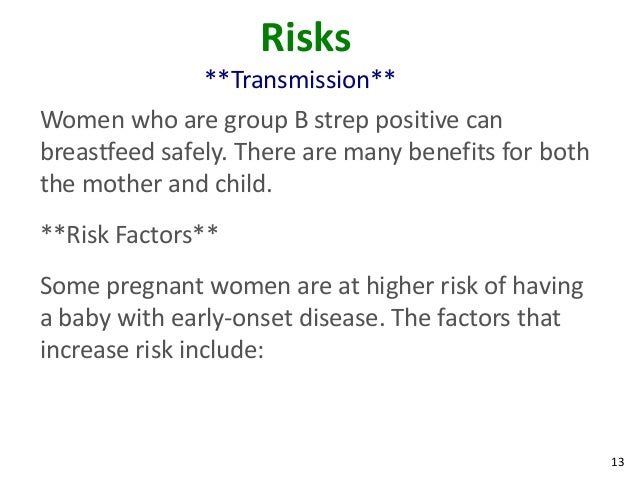


Group B streptococcus — also called group B strep — is a common bacterium often carried in the intestines or lower genital tract. Although group B strep is usually harmless in adults, it can cause complications during pregnancy and serious illness in newborns. If you’re pregnant, your health

Group B streptococcus infection, also known as Group B streptococcal disease, is the infection caused by the bacterium Streptococcus agalactiae (S. agalactiae) (also known as group B streptococcus or GBS).

What is GBS? The bacteria that causes group B strep normally lives in the intestine, vagina, or rectal areas. Group B strep colonization is not a …
What is the evidence for antibiotics for group B strep during labor? Are there any alternatives? Can hibiclens, garlic, or probiotics treat GBS?
Did You Know? A pregnant woman who tests positive for group B strep bacteria and gets antibiotics during labor can feel confident knowing that she has only a 1 in 4,000 chance of delivering a baby with group B strep disease.

A group B strep infection (GBS) may cause serious infections in pregnant women and newborns. Read about symptoms, signs, diagnosis, treatment and prevention.



Group B Strep Infection is a bacterial infection that can be found in a woman’s vagina or rectum and passed to the baby during delivery.
In this patient education FAQ, learn how Group B strep affects women during pregnancy and their newborns, including testing and treatment for GBS.

Group B Strep: What Does it Mean for Me and my Baby? Group B Streptococcus, otherwise known as GBS or Group B Strep, is a normally occurring bacteria that lives in the lower intestines of human beings – from babies to the elderly. It’s a hot topic in the world of having babies, and there
Group B streptococcus (strep) is a common bacterium often carried in your intestines or lower genital tract. Group B strep is usually harmless in adults. In newborns, however, it can cause a serious illness known as group B strep disease. Group B strep can also cause dangerous infections in adults
